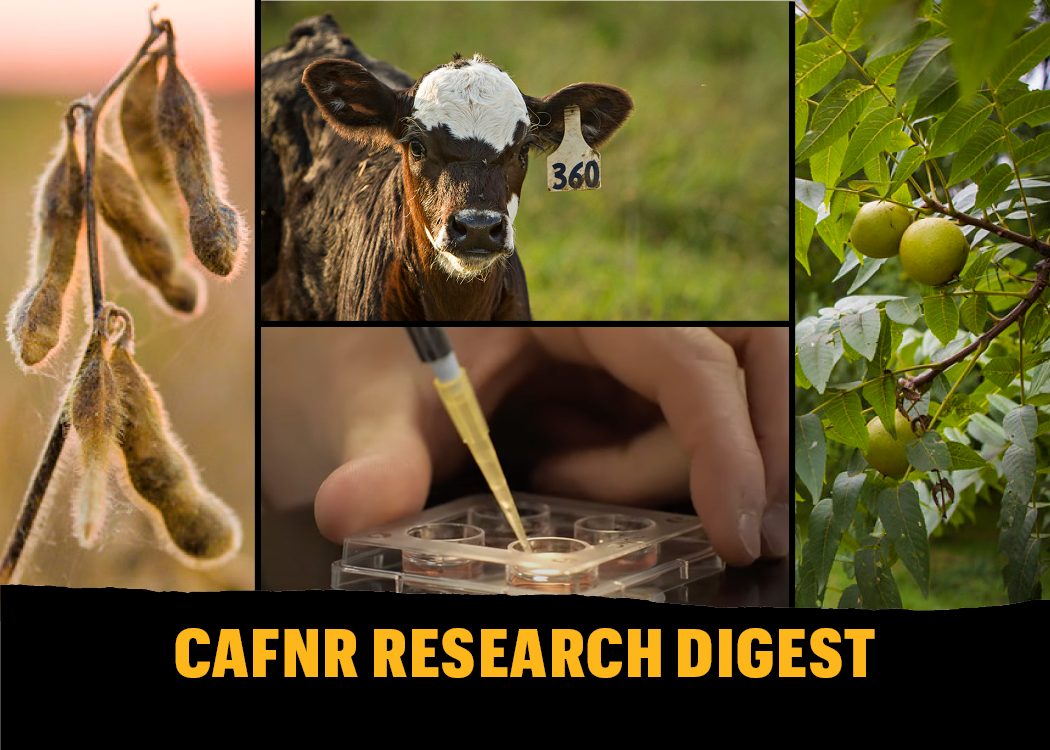|
CAFNR faculty members have received the following recent grants (listed by Principal Investigator):
Craig Paukert, Characterize aquatic biota and habitat for cold and cool water stream systems to enhance resource management and protection across thermal gradients, Missouri Department of Conservation, 7/1/23-6/30/24, $183,803
Hannah Hemmelgarn, Establishing a Professional Agroforestry Certification and Learning Network for Education and Exchange, North Central Regional Sustainable Agricultural Research and Education, 10/1/23-9/30/26, $119,962
Henry Nguyen, Expanding the Genetic Base of Southern Root-knot Nematode Resistance in Soybean, University of Arkansas, 10/1/23-9/30/24, $93,534
Feng Lin, Expanding the Genetic Base of Southern Root-knot Nematode Resistance in Soybean, University of Arkansas, 10/1/23-9/30/24, $56,510
Henry Nguyen, Gene editing and innovative mutation breeding approaches to develop 2nd generation improved soybean soluble carbohydrate composition, Texas Tech University, 10/1/23-9/30/24, $96,284
Henry Nguyen, Redefining the effects of beneficial microorganisms on N fixation and nutrient uptake in soybean to provide sustainable solutions to reduce chemical fertilizers use, Texas Tech University, 10/1/23-9/30/24, $80,141
Grover Shannon, Develop and deliver best management practices and soybean cultivars to minimize yield and quality losses from Cercospora leaf blight, Louisiana State University, 10/1/23-9/30/24, $35,999
Felix Fritschi, Utilizing Genes from the Soybean Germplasm Collection to Mitigate Drought Stress – Phase II, Agricultural Research Service, 10/1/23-9/30/24, $244,641
|
